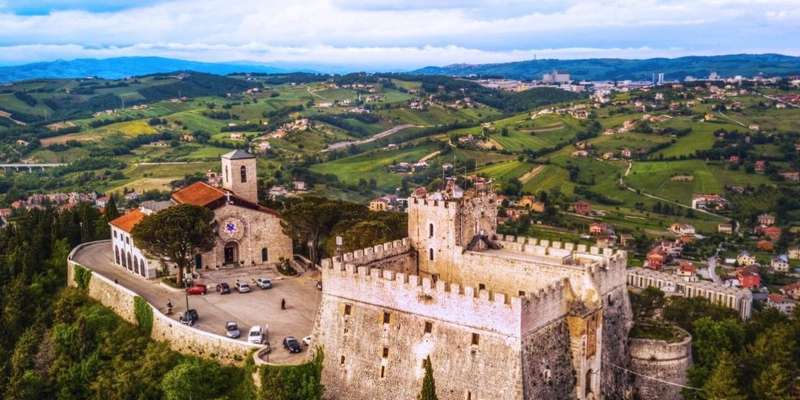- Home
- Useful Tips
- Cultural workshops and artisan...
Many travelers to Italy's hidden gem, Campobasso, miss its rich artisan traditions simply because they don't know where to look. While 78% of visitors to Molise region focus solely on nature hikes, they overlook immersive cultural experiences that create lasting memories. The frustration of finding authentic workshops among tourist traps, or missing seasonal demonstrations by master craftsmen, leaves visitors with generic souvenirs rather than meaningful connections. Language barriers and scattered workshop locations compound the problem, turning what should be an enriching adventure into a stressful scavenger hunt. For those seeking genuine interactions with Italy's living heritage, these oversights mean returning home without experiencing Campobasso's soul.


Finding authentic workshops beyond the tourist brochures
The challenge in Campobasso isn't finding crafts, but distinguishing between mass-produced souvenirs and genuine artisan workshops. Many storefronts near Piazza Municipio sell imported goods disguised as local crafts, leaving visitors disappointed. True workshops are tucked away in basements of 15th-century buildings or family homes in the old Jewish quarter, where third-generation blacksmiths still shape iron using medieval techniques. One reliable indicator is the 'Bottega Storica' plaque – a government certification awarded to traditional workshops. The best pottery studios operate near Via dei Cerri, where you can smell the wood-fired kilns before seeing them. Leather artisans cluster around Vico dei Vecchi, their open doors inviting passersby to watch hand-tooling processes unchanged since the Renaissance. These locations rarely appear on maps, so ask your B&B host about 'laboratori artigianali' rather than 'negozi' to get pointed in the right direction.
Timing your visit for hands-on experiences
Campobasso's artisan calendar follows rhythms unknown to guidebooks. Most workshops close August 1-25 for family holidays, while September brings the Settembre al Borgo festival where masters demonstrate rare techniques. Pottery classes at Bottega D'Arte Tosti fill six months in advance for their July raku firing workshops – a spectacular nighttime event where glowing pieces are pulled from kilns. Lacemakers at Antico Ricamo Sammartino only accept visitors on Wednesday mornings when the founder's 90-year-old mother teaches bobbin techniques. For spontaneous learners, the third Saturday of each month sees spontaneous 'open bottega' events along Via Falcone where you can try blacksmithing basics. Smart travelers align visits with the lunar cycle – many artisans still prefer working with natural light and schedule intricate engraving work around full moons.
Participating without breaking the bank
While some workshops charge premium prices for tourist-focused classes, authentic experiences often cost less than a restaurant meal. The municipal cultural office offers free Tuesday demonstrations by rotating artisans – you'll find locals rather than tourists at these events. Many craftsmen welcome observers for free if you arrive during quiet hours (typically 9-11am). For hands-on opportunities, seek 'scuola bottega' programs where apprenticeships are condensed into 2-hour sessions starting at €15. Ceramicist Marco Di Lallo runs pay-what-you-want workshops on first Sundays to keep traditions accessible. At family-run Lanificio Leo, you can card wool for an hour in exchange for discount on their famous blankets. Always carry small change – it's customary to offer €5-10 'grazie' money when photographing or filming artisans at work, a practice that builds goodwill for deeper access.
Turning observations into lasting memories
The real magic happens when you move beyond passive watching to creating alongside masters. Several workshops offer 'ricordo' (memory) sessions where you make simplified versions of their crafts. At Legatoria Artigiana, you'll bind a notebook using scraps of 19th-century marbled paper. Copper artisan Giuseppe Tucci guides visitors in hammering personalized spoons from recycled materials. These take-home pieces become conversation starters that keep your trip alive for years. For deeper immersion, some bottegas offer 'shadow days' where you follow an artisan's routine from morning espresso to workshop cleanup – these unstructured experiences often yield the most authentic stories and techniques. Remember to ask about the 'forgotten crafts' – dying arts like handmade rosaries or agricultural tool repair that survive only in Campobasso's backstreets.